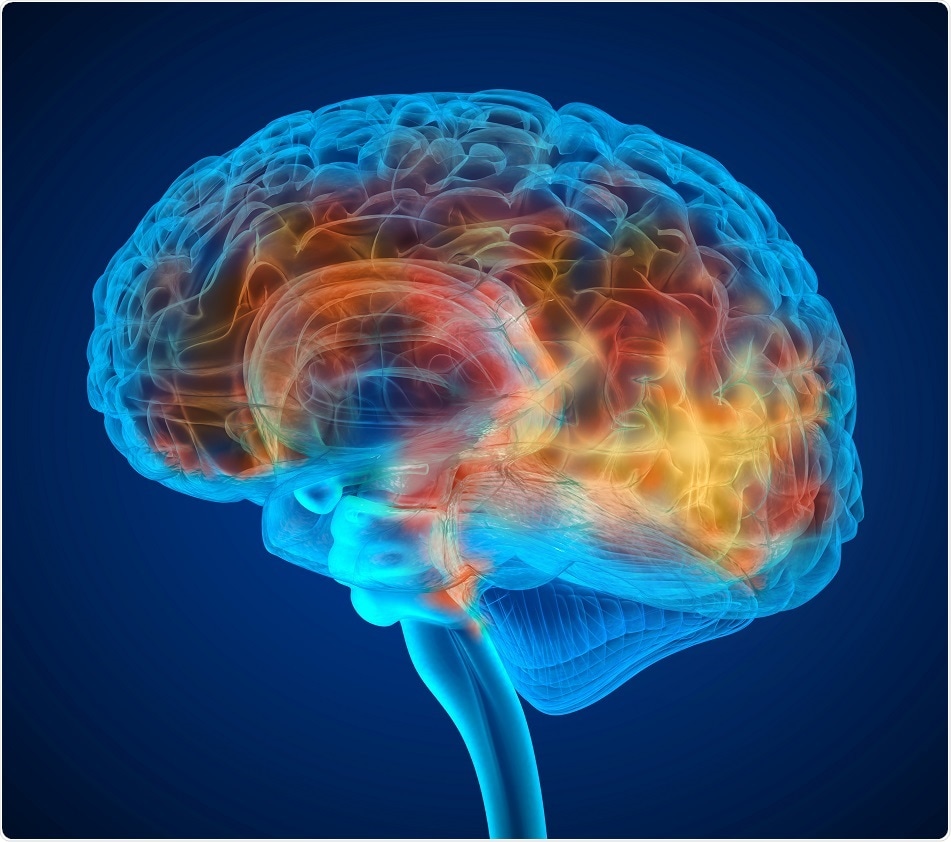Fibromyalgia is a condition in which there is extensive chronic pain across the body with an increased pain response to pressure, which would normally not be painful. Central to the pathogenesis of fibromyalgia is impaired nociceptive (pain) signal processing in the nervous system. Therefore, fibromyalgia in its pure form is a neurobiological disorder rather than a psychiatric or psychological disorder.
Although the exact cause of fibromyalgia is unknown, what is known is that there is a lot of overlap between fibromyalgia and rheumatoid arthritis, chronic fatigue syndrome and systemic lupus erythematosus. These disorders are autoimmune disorders and display significant levels of systemic inflammation.
Scientists have speculated whether fibromyalgia could also be inflammatory in nature, though evidence for this has been lacking to date.
We don't have good treatment options for fibromyalgia, so identifying a potential treatment target could lead to the development of innovative, more effective therapies,and finding objective neurochemical changes in the brains of patients with fibromyalgia should help reduce the persistent stigma that many patients face, often being told their symptoms are imaginary and there's nothing really wrong with them." Marco Loggia, PhD, Assistant professor of Radiology at Harvard Medical School.
What is Neuroinflammation (Brain Inflammation)?
Inflammation is a localised or generalised bodily response to injury, infection or disease. It is characterised by four key signs: rubor (redness), calor (heat), tumor (swelling) and dolor (pain). Neuroinflammation is the specific inflammation (short term or chronic) of the nervous system (brain & spinal cord). Neuroinflammation is present in a variety of brain diseases including neurodegenerative diseases such as Alzheimer’s, multiple sclerosis, traumatic brain injury and prolonged stress, to name a few examples.
.jpg)
The symptoms that commonly affect patients with fibromyalgia syndrome include pain, sleep problems, stiffness (especially after rest in the morning), fatigue, bowel upset (irritable bowel syndrome), depression, headaches etc. The pain and the symptoms of the condition tend to last a life time in most patients.. Image Credit: Agenturfotografin / Shutterstock
During neuroinflammation, microglia (brains immune cells) and astrocytes (support cells) become activated and release various inflammatory mediators, such as chemokines and cytokines. These inflammatory responses are usually localised to the brain, but over time, they may compromise the blood-brain-barrier and lead to systemic inflammation. The influx of systemic immune cells such as lymphocytes into the brain after BBB breakdown can further worsen neuroinflammation and may lead to permanent neural damage.
Neuroinflammation in Fibromyalgia
Several studies have now shown the presence of neuroinflammation in the brains of patients with fibromyalgia. In a study by Bäckryd et al in 2017, the CSF, a direct measure of the brain, as well as blood plasma levels of various inflammatory markers were investigated between patients and healthy controls. Levels of IL-7, CD40 and SIRT2 (all inflammatory markers) were substantially higher in the CSF and plasma of patients with fibromyalgia compared to controls. This suggests that fibromyalgia has both neuroinflammation as well as systemic inflammation.
A more recent brain imaging study of 31 patients and 27 controls (published in Brain, Behaviour and Immunity by Albrecht and colleagues in 2019), found that the patients had widespread microglial activation as measured by [11C]PBR28 signal using a PET scan. As mentioned previously, microglia become activated during neuroinflammation. Activated microglia release pro-inflammatory mediators in the brain, sensitising nociceptive (pain) neural pathways in the brain.
Furthermore, two independent groups, one in Massachusetts General Hospital (US), and another group at the Karolinska Institutet (Sweden) both saw the same patterns of microglial activation in fibromyalgia patients, but not controls. The collaboration of these two groups led to the study published in Brain, Behaviour & Immunity. As both groups saw the same results and came to the same conclusion, it enhances the validity of the findings.

Credit Alex Mit | Shutterstock
In summary, there is new evidence of neuroinflammation in patients with fibromyalgia. Knowing that neuroinflammation is seen in patients with fibromyalgia, novel therapeutic targets can be researched and developed to target the sensitisation of pain pathways in the brain that lead to the symptoms, including fatigue. Neuroinflammation is also seen in chronic fatigue syndrome. Blocking the inflammatory mediators released by activated microglia could in part reduce the overall symptoms of fibromyalgia.
Sources:
- NHS.uk, 2019. Fibromyalgia. https://www.nhs.uk/conditions/fibromyalgia/
- FMAUK.org, 2019. What is Fibromyalgia? http://www.fmauk.org/2-uncategorised/52-what-is-fibromyalgia
- Bäckryd et al, 2017. Evidence of both systemic inflammation and neuroinflammation in fibromyalgia patients, as assessed by a multiplex protein panel applied to the cerebrospinal fluid and to plasma. J Pain Res. 2017; 10: 515–525. https://www.ncbi.nlm.nih.gov/pmc/articles/PMC5344444/
- Albrecht et al, 2019. Brain glial activation in fibromyalgia – A multi-site positron emission tomography investigation. Brain, Behaviour & Immunity. 75:72-83 https://www.sciencedirect.com/science/article/pii/S0889159118302423
Further Reading
Last Updated: Jul 5, 2019